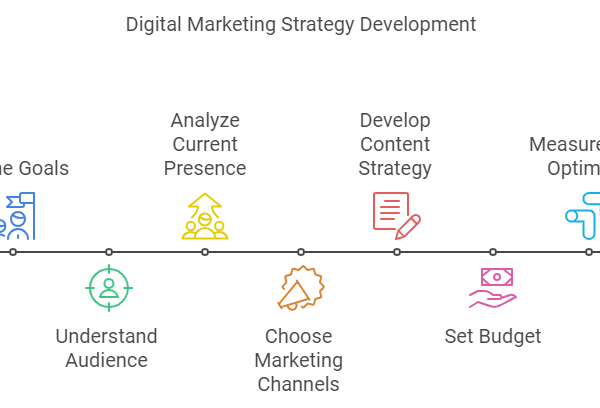
Thus, Future Of online education in India is not fixed as it has been with developed over the years with the help of improved technology, enhancement in the society and needs for the courses and institution which provides flexibility. Looking into the future, the following trends and factors would impact on the development of online education in the country. Here’s a look into the future of where this exciting field is likely to go.
The Rise of EdTech Startups
India’s EdTech market has been flooded with Start-ups that are revolutionizing the infrastructure of education. Today, the giants such as Biju’s, Unacademic, Coursera among others provide learning solutions from the kindergartens to professional skills. These startups are using technology in achieving dynamic and personalized approaches to learning. In the future one will see more development of these platforms with the addition of such elements as AI and machine learning to apply the technical characteristics in presenting educational content in accordance with the individual characteristics of a learner.
Government Policies and Support Scheme
The Central government of India has realized the potential and impact of online education and has come up with the general policies for the same. Platforms like SWAYAM that provides online courses from the Indian Universities and National Education Policy (NEP) 2020 that focuses on the use of technology in learning are in the right direction. It can be expected that in the future there will be additional support of the government for online education through funding, construction of infrastructure, and consistent reforms that will allow to create effective system all over the country.
Enhanced Accessibility and Inclusivity
Probably the most important advantage of online education is delivering education to the students who living in the rural areas and can hardly get any education at all. With the growth of internet connection and other facilities of information technology the concepts of online learning are now getting more and more diverse. The future will only expand further with localized content in regional languages, hence, the masses will easily adopt education. New steps that will contribute to the further decrease of the gap and improvement of the accessibility of Information and Communications Technologies, which has been planned by the government related to assistant devices for the appropriate connection to the Internet and other similar measures, will be added.
Application of Artificial Intelligent and Machine Learning
The future of online facilitated education is ripe for Artificial Intelligence or commonly known as (AI) and Machine Learning or (ML). Such learning technologies can provide customized learning to students and can monitor the performance of the students and decide about the modifications to be made in content on the basis of the performance. Chatbots powered by artificial intelligence can help give almost instant, response and feedbacks while on the other hand predictive analytics can assist educators to have a glimpse of which students may require more attention. They will be used to promote the efficiency of education that is delivered online as the technologies advance in the future.
Microlearning and modular course : A five year trend
An important trend, growing in the area of online classes, is microlearning which focuses on the accumulation of knowledge in small, easily digestible portions. This method addresses the contemporary learner’s desire for short and specific study periods. Another trend that is evident is the modular courses which entail the acquisition of credentials in small segments. Due to this flexibility, learners are able to obtain specific skills or knowledge within a given area without having to enroll in a full-length course. More specifically, a lot of emphasis will be placed on the use of microlearning and on the module based system with students and working population.
The focus is placed on Training and Education throughout life.
The modern tendencies of the job market are focused on the idea of skill-building and continuing education. Online classes are rather suited for this purpose allowing to enroll students in a number of courses that are centered upon the acquisition of certain practical skills and professional knowledge. Marketplaces are increasingly involved experts and organizations to issue certification and trainings, which reflect the demands of the modern jobs. As for the future of online classes, it is necessary to state that education will be focused on the acquisition of core competencies that will allow users to remain supply-demand balanced in a constantly evolving work market.
The application of Virtual Reality and Augmented Reality in learning.
Virtual Reality (VR) and Augmented Reality (AR) are some of the technologies which if incorporated in online education will see a dramatic shift. Thus, VR helps the students to develop learning contents experienced in a virtual space and, on the other hand, AR learning helps in overlaying digital information over the physical environment where students are engaged in a learning activity. These technologies are still in the development phase, however their application in online classes will most probably increase, thus giving the students rather effective and creative conditions.
The challenge of quality assurance is as follows:
Overall, online education is very useful, though the problem of identification of proper quality of content and effective kinds of instructions is still a problem. However, as the number of online terms and platforms continues to grow, standards of learning will be of great concern. From the authors’ perspective, it is evident that the national accreditation bodies, institutions of learning and technology providers will need to align and set the quality standards. In the future, there is going to be improvements in he mechanisms of quality assurance to make sure that online education remains effective.
Conclusion
As it has been concluded that the future of online education is bright in India, newer and better technologies and advancements are expected in future also. Regarding EdTech startups and governmental policies, as well as the application of AI, VR, ad AR, the world is preparing for even more efficient, individualized, and accessible online education. Moving to the next phase, the emphasis will be made on the continuous improvement of accessibility, as well as, quality and skills development for learners in the context of their countries’ needs. To sum it up, as the aspect of online education receives a continuous and appropriate support, it will continue contributing to the development of India’s educational system in the years to come.











